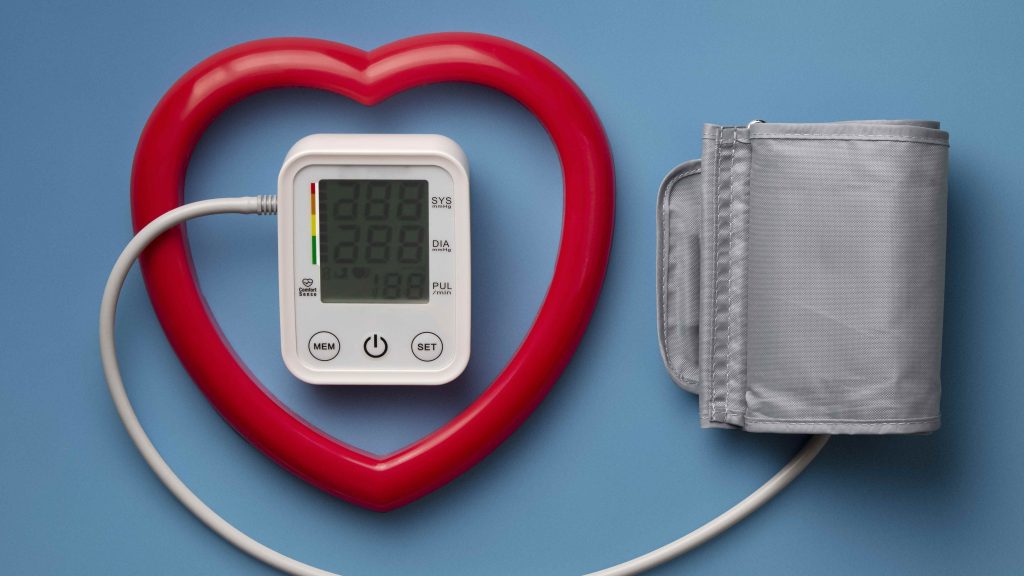The Link Between Sleep Apnea and High Blood Pressure

Sleep Apnea affects your health, especially your blood pressure. The article explains this phenomena and the reasons behind it.
Waking up tired is one thing but learning that poor sleep could be raising your blood pressure is something most people never expect.
If you live with sleep apnea, you may already know the toll it takes on your energy, focus, and daily life. What often surprises people, though, is how closely sleep apnea is linked to high blood pressure (hypertension). Many people with sleep problems also notice other health issues that don’t seem related at first.
The good news? By understanding how sleep apnea affects your health, specifically your blood pressure, you can take meaningful steps toward both better rest and better overall health.
What is Sleep Apnea?
Sleep apnea is a condition where breathing briefly stops or becomes very shallow during sleep. These pauses can last a few seconds or longer, and they often repeat many times a night. Each pause briefly wakes the body sometimes without you even realizing it, causing fragmented sleep.
When this happens:
- Oxygen levels drop
- The brain sends signals that jolt the body awake to resume breathing
- Stress hormones like adrenaline increase
Over time, this constant cycle of disrupted breathing and arousal puts strain on the cardiovascular system, making high blood pressure more likely.
Why Sleep Apnea Raises Blood Pressure?
The link between sleep apnea and hypertension has been well documented in medical research. When we look at what happens in the body during an apnea episode, the connection becomes clearer.
1. Oxygen Drops Stress the Body
When breathing stops, even for just a few seconds, oxygen levels in the blood dip. The brain immediately senses this change and responds by releasing stress hormones like adrenaline and cortisol. These hormones act as a short-term survival tool, tightening blood vessels and pushing the heart to pump harder so oxygen can reach vital organs. Over time, however, this constant “emergency response” keeps blood pressure elevated even during the day.
2. Sleep Fragmentation Keeps the Nervous System on Alert
Every time the body wakes briefly to restart breathing, it prevents you from reaching deeper, restorative stages of sleep. This repeated disruption activates the sympathetic nervous system, the part of the body responsible for the “fight-or-flight” response. Instead of winding down at night, the body stays stuck in a heightened state of alertness. This constant activation raises nighttime blood pressure and can make daytime blood pressure harder to control.
3. Increased Strain on the Heart
The heart is especially affected by repeated pauses in breathing. Each apnea episode forces the heart to work harder against narrowed blood vessels and fluctuating oxygen levels. Over months and years, this extra workload can lead not only to sustained high blood pressure but also to other cardiovascular risks such as arrhythmias (irregular heartbeats) and increased risk of heart disease.

Common Contributing Factors
There are several common factors that contribute to both sleep apnea and high blood pressure:
- Excess weight or obesity (extra tissue in the throat makes airway collapse more likely)
- Sedentary lifestyle (less physical activity means higher risk for both conditions)
- Chronic stress (keeps the nervous system activated, worsening both sleep and blood pressure)
- Alcohol use close to bedtime (relaxes throat muscles and disrupts sleep quality)
- Unrecognized sleep issues (many people don’t know they wake up dozens of times a night)
Sleep apnea doesn’t just influence blood pressure, it can also affect other areas of physical and mental health. Read more about the wider health impacts of sleep apnea here.
Practical Steps to Support Sleep and Blood Pressure
Improvement is possible. While medical treatment (such as CPAP therapy) may be necessary for some, lifestyle and behavioral strategies play a powerful role too. Here are some evidence-based steps you can try:
1. Establish a Consistent Sleep Schedule
Going to bed and waking up around the same time each day helps regulate your body’s internal clock, making restful sleep more accessible.
2. Create a Calm Pre-Bed Routine
Gentle wind-down activities such as reading, journaling, or light stretching signal to the body that it’s safe to shift into sleep mode.
3. Practice Relaxation Techniques
Breathing exercises, mindfulness, or progressive muscle relaxation can reduce stress levels and calm the nervous system, lowering both nighttime arousals and daily blood pressure.
4. Reduce Evening Stimulants and Alcohol
Caffeine and alcohol can both disrupt sleep quality and interfere with healthy blood pressure regulation. Try cutting back, especially in the hours before bedtime.
5. Incorporate Gentle Physical Activity
Even light activity like walking or yoga during the day can improve cardiovascular health and promote more stable sleep.
A Compassionate Perspective
If you’re dealing with sleep apnea and high blood pressure, you’re not alone. Many people find this connection only after months or years of struggling, and it can feel overwhelming. What matters most is knowing that improvement is possible, step by step, change by change.
CBT-I and ACT approaches remind us that we cannot force sleep, but we can create the conditions where sleep comes more naturally. By focusing on what you can control, your routines, your mindset, your environment, you give both your body and mind the chance to recover.
Wrapping It Up
If you’ve been diagnosed with sleep apnea or are concerned about its impact on your health, consider reaching out for support. Addressing sleep apnea isn’t just about stopping snoring, it’s about protecting your heart, your energy, and your overall well-being.
Are you ready to transform your relationship with sleep? Learn more about our “Gently to Sleep” program and take the first step toward restful nights and energized days. Contact us to schedule a free online consultation with Tony Ho.
